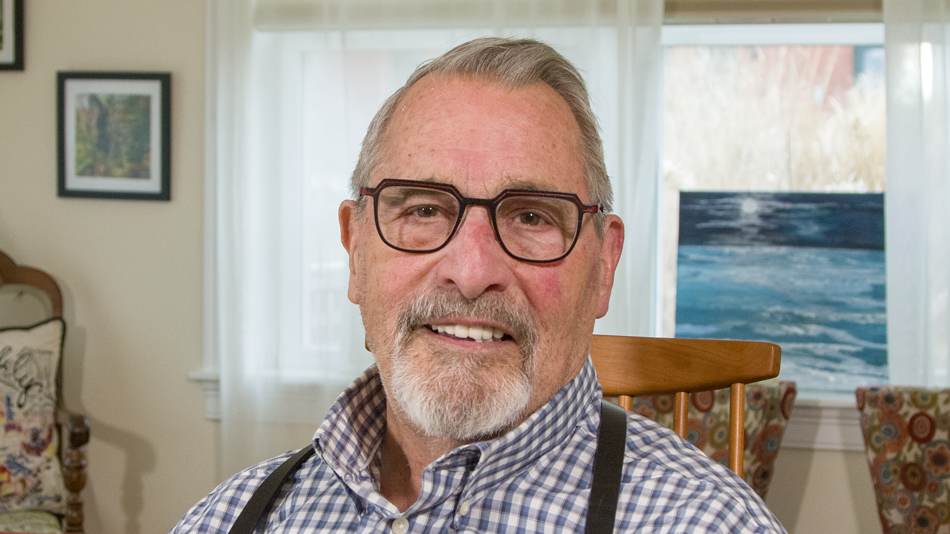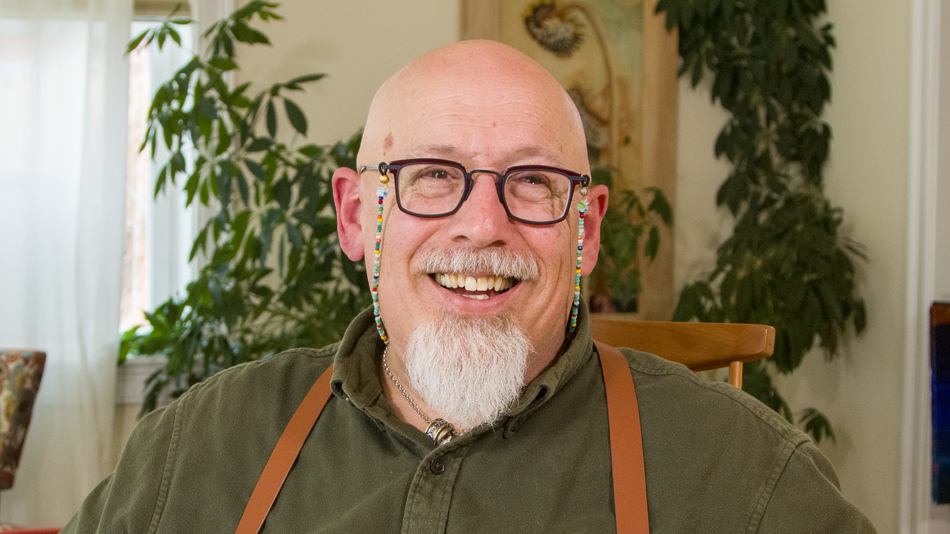My name is Christian Mendoza. I was born in San Luis Potosi, Mexico.
I remember at the age of 5, my dad – he was a police officer in the narcotics and gang unit. Every time he would come home, he would have this uniform – it was like a really tactical uniform. At times, he will bring a dog in, so it was this canine – they give him a dog. But most important of all, I remember on the weekends when he would bring his vehicle, I would sit in the driver’s side and I would hold my hands on the steering wheel – and I couldn’t reach the gas pedal, but I would just remember, I mean, just hitting the lights and seeing those lights kinda reflect on the – in the garage and just pretending, you know, that I was chasing a bad guy, somebody who just committed a felony, and I was on a mission to go get the suspect and put him in jail.
So about 12 years later, living now here in Austin, Texas, I remember applying for this leadership academy with the US Secret Service in Washington DC. It was an extremely competitive application. I remember the application when I submitted it and it was just like this thick. Months later, I received a notification that I’d had been accepted into this leadership academy. So I was super excited – ended up getting the opportunity to travel to Washington DC, work with the US Secret Service there, and just simply seeing, you know, now and then to see at a federal level – that pretty much intensified what I wanted to do and, you know, to become a law enforcement officer
Shortly after coming back from the Secret Service, I had the opportunity to become an intern for the Austin Police Department. I volunteered thousands of hours with the robbery unit, homicide unit and sex crimes unit. And all these units pretty much gave me more – amped me more in what I wanted to do and become a police officer.
About 5 years later, I was about 20 and a half. I spoke with the chief, the prior chief to the police department, and I told him, like, “Hey, this is what I want to do.” So we kind of went through the process of like, Hey, this is going to be the requirements. This is gonna be what’s going to happen in the academy.
So when I was looking at when the requirements, I told him, like, “Hey, like, I don’t think I’m a US citizen. Do you think this is going to prevent me from applying?”
He said, “Unfortunately, yes because there’s nothing that I can do. It’s pretty much a state requirement that, you know, you have to be a US citizen to apply.”
So I was like, “Okay, you know, well maybe I can work something else that I can eventually apply.” So I remember going back, spoke my family, went to talk to a immigation lawyer.
The immigration lawyer said, like, “Hey, you know, there’s no way at the moment or a fast process for you to join the police department.” They said, you know, “Maybe potentially joining the military.”
So I said, “Okay, you know, I’m 100 percent okay with that, you know, just fighting for our country.”
So I went and talked with the recruiter, and the recruiter said, like, “Hey, you know, you have to be at least a U.S. resident in order to apply.” And I wasn’t even a U.S. resident, so that was pretty discouraging knowing that, hey, you know, there’s just no way that I could apply for the police department right now.
Around the same time, Congress passed the Matthew Shepard and James Byrd Jr Hate Crimes Prevention Act. President Obama ended up signing that act. It’s pretty much an act that prevents people from being discriminated against, you know, certain elements or certain entities. So at that time I wasn’t out to my family, so hearing some of the comments that they were making about the passing of this act was pretty – it was heartbreaking.
So I remember that one night, we had invited a church members and friends over to our home for a dinner around the same time. There were approximately, I want to say, 15 people around the table. I was actually in the living room just talking with some friends and my siblings. When I heard that comment, you know, somebody saying, you know, “Why should we treat certain people with special rights?” And another person saying, like, “Hey, you know, I don’t think God is gonna love people who are homosexual or people who are on the LGBTQ+ spectrum.” So hearing that, you know, I didn’t, you know, I kinda… it was heartbreaking for me.
So by now there was that dead end as far as applying for APD. There was a dead end about joining the military. Even with my family, you know, not being able to open up to them because hearing their thoughts and what they were gonna feel towards me, I felt like I was pretty much against a wall. Like, where do I turn now?
So shortly after that I ended up, you know, going back to speak with the chief and he said, like, “You know what? Like, even though you cannot become a police officer, you know, there’s other opportunities for you as a civilian within the Austin Police Department. So I looked into that and shortly after, maybe about 2 years later, an opportunity arose and that was an opening for the LGBTQ+ liaison for the Austin Police Department. So I ended up applying for this position. Within 3 months, I received notification that I had been hired for this position. So it was a moment of extreme… extreme joy because I knew that, okay, I had finally landed at least somewhere where it was closer to achieving my goal of wanting to become a police officer. Maybe not necessarily as a sworn officer, but at least I was within the department serving other people.
So shortly after joining this position, there was an incident in my life where my mother ended up finding out about myself. But surprisingly, you know, she told me, like, “Hey, if you thought that I was gonna disown you, if thought that I was to be mad at you, I want you to know that you are wrong. My job here on earth is to love you as a mother and to support you and to be just that mother because you are my son. So whatever you do, I know you have good intentions for other people and I support you for that.” So that was an extreme relief, but at the same time, it was to push forward in knowing that, hey, now even though I couldn’t join, you know, the police department, there were so many obstacles coming my way, I finally landed in a position where I got support from the community, from my mother and friends, and I knew that I was gonna finally be able to serve in some way our community.
So my role as the LGBTQ liaison for the Austin Police Department, it’s been a better liaison for the LGBTQ+ community, but at the same time working with APD officers who might not necessarily know or experience, you know, being LGBTQ+, and pretty much at the end of the day, being able to bridge that gap, that trust between both communities. Whether it be like, Hey, this is how we can better serve our community here in Austin, Texas, and at the same time you’re listening to some of the concerns and like, hey, what can we do as a law enforcement agency to ensure that we can continue to build that trust here in our city?
So being 26 now, the lights and sirens, they’re not so exciting anymore like it was when I was 4, but to this day what brings joy and excitement is seeing other people smile and say, like, “Wow, like, you know what? Like, thank you for what you do” or what the Austin Police Department does or what the city is doing to help our community, the LGBTQ+ community. So just hearing those kinds of things and people being appreciative of being like, wow, like, people we are trying to, you know, bond with us. It is what definitely – the same excitement and the same joy that I had with those lights and sirens, it’s what I get when I hear those type of compliments and comments from the community.








Share